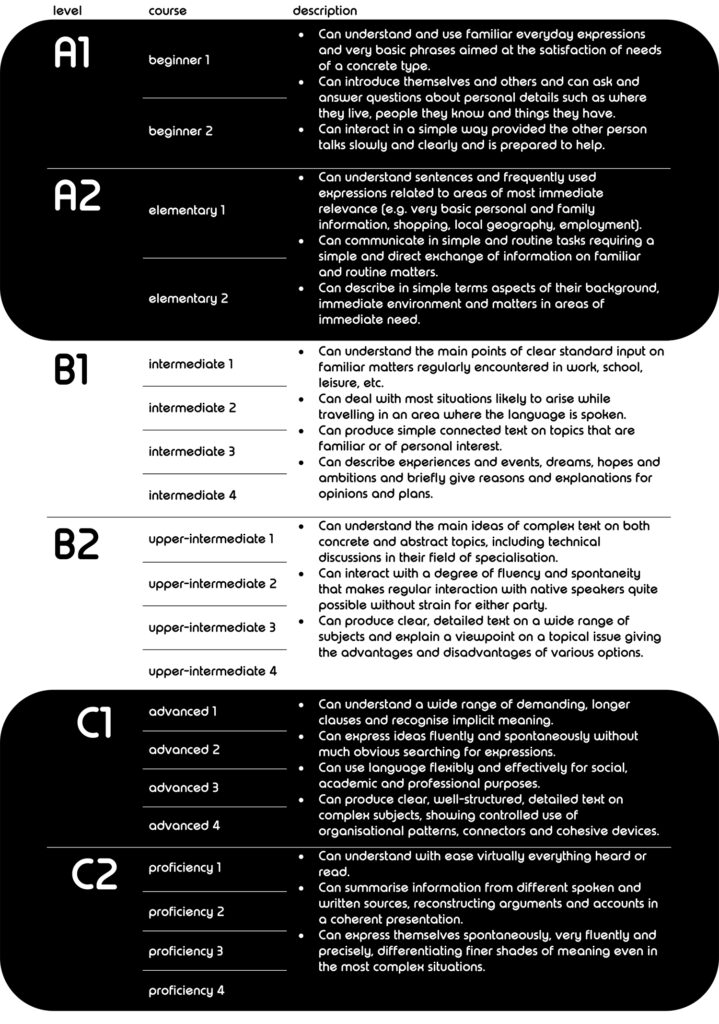The Common European Framework of Reference for Languages: Learning, Teaching, Assessment, abbreviated in English as CEFR, is a guideline used to describe achievements of learners of foreign languages across Europe. The CEFR makes it easier for educational institutions and employers to evaluate the language qualifications of candidates for education admission or employment. Its main aim is to provide a method of learning, teaching, and assessing that applies to all languages in Europe.
The CEFR has three principal dimensions: language activities, the domains in which the language activities occur, and the competencies on which a person draws when they engage in them.
language activities
The CEFR distinguishes four kinds of language activities: reception (listening and reading), production (spoken and written), interaction (spoken and written) and mediation (translating and interpreting).
domains
General and particular communicative competencies are developed by producing or receiving texts in various contexts under various conditions and constraints. These contexts correspond to various sectors of social life that the CEFR calls domains. Four broad domains are distinguished: educational, occupational, public and personal.
competences
A language user can develop various degrees of competence in each of these domains and to help describe them, the CEFR has provided a set of six Common Reference Levels (A1, A2, B1, B2, C1, C2).
common reference levels
The table below indicates the levels of the Common European Framework.

courses at globaldutch
Our textbooks and method are based on the CEFR levels. The book Start.nl part 1 brings you from level 0 to A1, the book Start.nl part 2 from level A1 to A2, the book Nederlands in actie from level A2 to B1, etc. The link between the levels and courses is shown in the table, for example level 0 to A1 is divided into 2 courses (beginner 1 and beginner 2). After completing the course beginner 2 you will get an A1 level certificate. And for every next level (A2, B1, etc) you will get another certificate!
cnavt
The CNaVT (Certificaat Nederlands als Vreemde Taal) certifies language proficiency of Dutch as a foreign language worldwide, using task based and domain specific exams related to the CEFR. The CNaVT exams are organized all around the world for adults who want to prove their language proficiency in Dutch with an internationally recognized certificate. There are 5 different exams from level A2 up to level C1. Registration is open from February 15 until March 15, the exams are held every year between May 1 and May 15. globaldutch offers preparation courses for these exams between March 15 and May 1. Go to the CNaVT website for more information about the exams.

